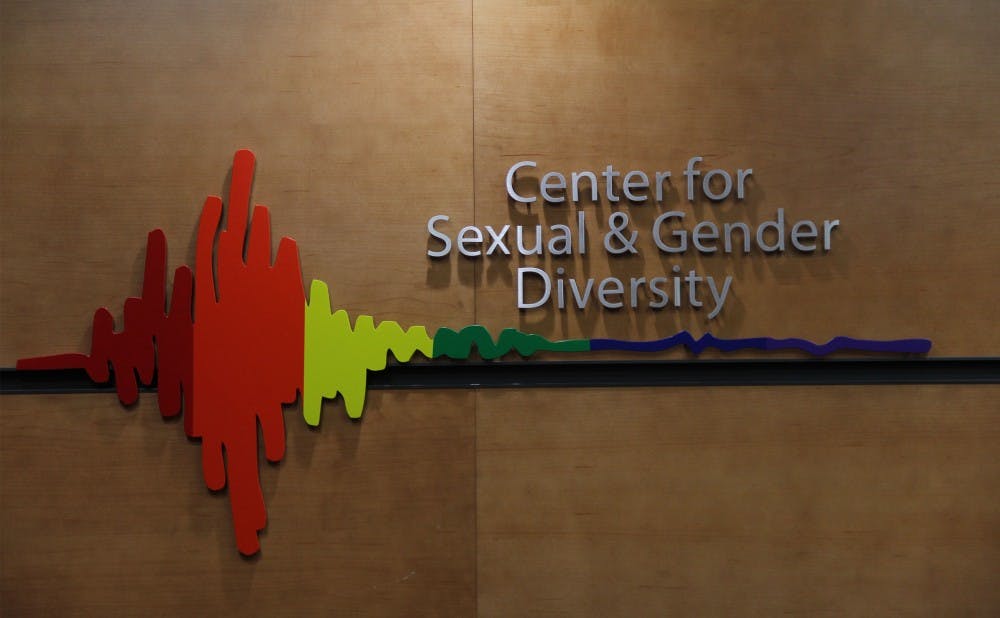A new LGBTQ-inclusive question on Duke’s admissions supplement puts the University among the first to explicitly mention sexual orientation and gender identity on its application.
Applicants for the Class of 2019 will find an additional optional question on Duke’s supplement page—one that makes history and speaks directly to Duke’s commitment to a wide range of diversity, administrators said. Duke is the first school that uses the Common Application to ask such a question on its supplement. There are three other undergraduate institutions across the country that do so—the Massachusetts Institute of Technology, the University of Iowa and Elmhurst College in Illinois.
Duke’s supplement this year will feature the following optional prompt, with a 250 word limit for the response:
"Duke University seeks a talented, engaged student body that embodies the wide range of human experience; we believe that the diversity of our students makes our community stronger. If you’d like to share a perspective you bring or experiences you’ve had to help us understand you better—perhaps related to a community you belong to, your sexual orientation or gender identity, or your family or cultural background—we encourage you to do so. Real people are reading your application, and we want to do our best to understand and appreciate the real people applying to Duke."
Dean of Undergraduate Admissions Christoph Guttentag said the goal of such a question is to understand applicants broadly rather than narrowly. He added that the question gives students the opportunity to express these characteristics without portraying them as defining factors.
“We wanted to make it clear to the applicant and everyone involved in the application process that diversity is really broadly defined and not just in terms of a box you can check, not just in demographic characteristics,” he said.
Guttentag noted that one of the many reasons for the question is that the perception of diversity at Duke lags behind the reality. Duke is a significantly more diverse place—across any number of dimensions—than it used to be, he added.
The application question grew from an initiative by Blue Devils United, the undergraduate support and advocacy group for LGBTQ students. Known as the EqUALS Project—Equitable Undergraduate Admissions for LGBTQ Students—the program is a collaborative effort between the admissions office and BDU.
Senior Daniel Kort, president of BDU, said he had grown concerned that there was not enough information available on the demographics of Duke's LGBTQ students. He feared LGBTQ students were either not applying to Duke or, if accepted, were not seriously considering it due to stereotypes about the South.
“We looked at admissions as a central hub on campus for dictating the campus culture, as they play a large role in determining what a Duke student is,” he said.
Historically, Duke has not always been known as an affirming environment for LGBTQ students and other historically marginalized groups, Kort added. He said he believes this question holds the potential to challenge applicants’ stereotypes about Duke.
Kort said he first envisioned the question of sexual orientation and gender identity manifested as a check box, but the proposal was rejected.
The Duke nondiscrimination statement names several identity factors including race, gender, age, ethnicity, military status, sexual orientation and gender identity, he added. The office of undergraduate admissions collects demographic information on all factors with the exception of sexual orientation and gender identity.
“This question is a historic step in the right direction,” he said. “That being said, I believe that the absence of this sort of check box ultimately serves as a double standard of treating gender and sexual minorities differently than their peers of other historically marginalized demographics.”
Ben Reese, vice president of the office for institutional equity, said he recognizes that some students favor checking off a box to express various aspects of their identity. He added, however, that this question will probably not be the last step in providing the potential for students to express their experiences and identity.
“I don’t imagine that this will be the final point we get to in thinking through how to encourage students to express their fullest range of a background,” Reese said. “But I think this is an important step.”
Guttentag noted that applicants should not worry if they choose against answering the optional question. Diversity—in terms of perspectives, interests and values—is paid attention to in terms of creating a class as a whole, he said. Individually, he added, there are scores of factors taken into account, and diversity is not something that by itself drives an admission decision.
Guttentag added that through conversations with students, administration, and alumni, it has been made clear that Duke is a welcoming place for the whole range of sex orientation and gender identification.
“We feel that we were in a position to express that explicitly,” he said. “The world is different now than it was five years ago. We wanted to make sure with respect to sexual orientation and gender identification that people essentially understand that if it’s important to them, it’s important to us, and to Duke.”
Kort said he hopes to work closely with the office of undergraduate admissions in the coming year to assess the effectiveness of this years question and investigate whether this question may function better in a different format.
“I am eager to see if the question in its current state will equitably serve the needs of LGBTQ applicants,” he said. “If it doesn’t, I would hope that the office of undergraduate admissions may again consider the idea of a check box.”
Get The Chronicle straight to your inbox
Signup for our weekly newsletter. Cancel at any time.

